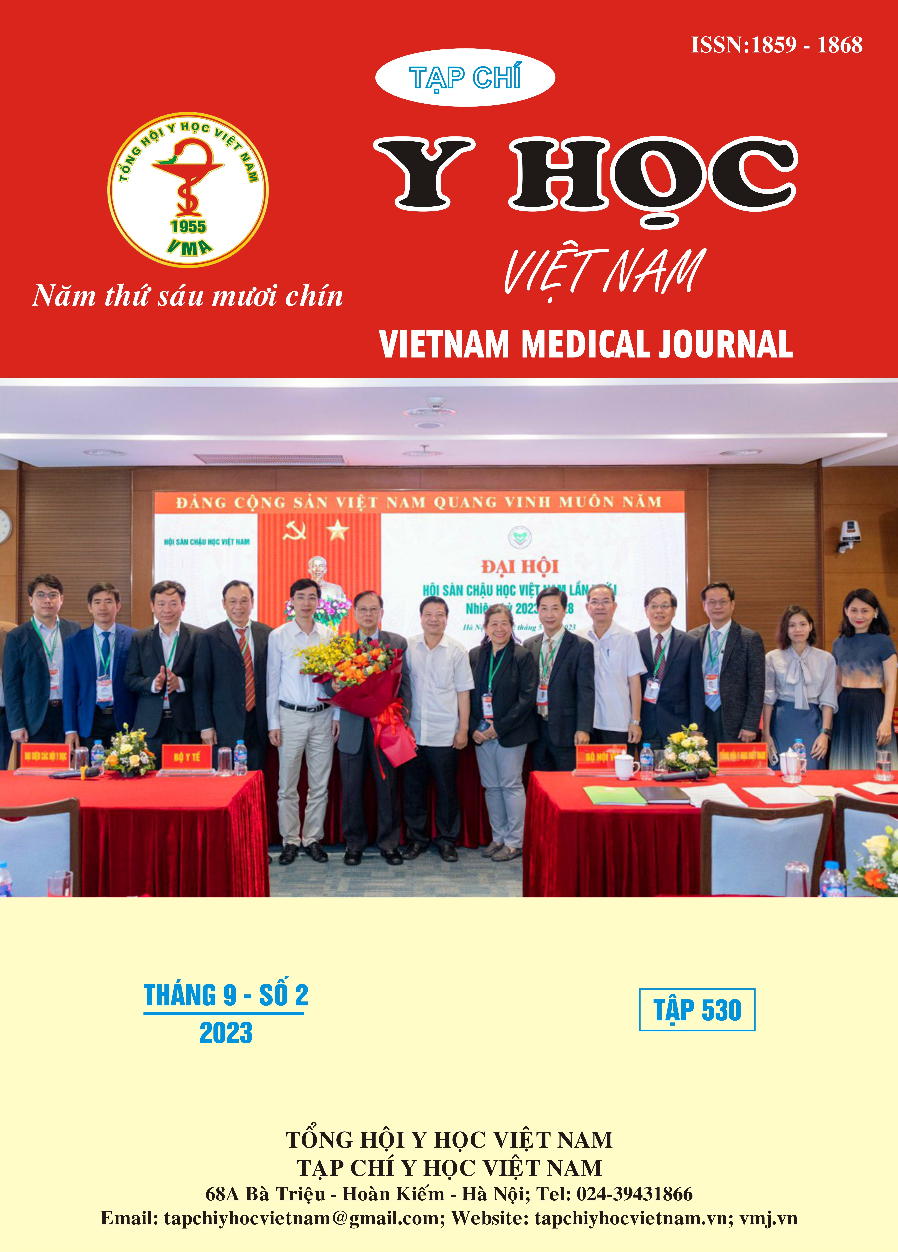CLINICAL AND PARA-CLINICAL CHARACTERISTICS AND THE EFFECTIVENESS OF PHOTOTHERAPY IN NEONATES WITH INDIRECT HYPERBILIRUBINEMIA JAUNDICE AT CAN THO
Main Article Content
Abstract
Objectives: To describe the clinical, para-clinical characteristics and evaluate of the effectiveness of phototherapy in neonates with indirect hyperbilirubinemia jaundice at the Neonatal Department, Can Tho Children’s Hospital. Methods: Cross-sectional descriptive study on 121 infants with indirect hyperbilirubinemia jaundice and used phototherapy as the treatment at Can Tho Children’s Hospital from June 2021 to June 2022. Results: Male sex accounted for 50.4%, with a male/female ratio was 1.02, premature infant rate of 17.4%. There were 35.5% of infants with zone 5 jaundice according to Kramer, mainly seen in premature infants. The average indirect bilirubin concentration was 274.4±78.4 µmol/l. Indirect bilirubin was higher in infants born vaginally than those born by surgery, with comorbidities higher than those without comorbidities (p<0.05). Treatment results: 96.7% of neonates were successfully cured, 3.3% failed and had to exchange transfusion. Infants with comorbidities, had jaundice in zone 5, were born vaginally, jaundice appeared before 7 age day, prolonged phototherapy exposure time. Conclusion: Phototherapy in neonates of indirect hyperbilirubinemia with was highly effective; it needs to focus on infants with infection diseases, jaundice appeared soon in order
Article Details
Keywords
jaundice, hyperbilirubinemia, neonatal, phototherapy.


